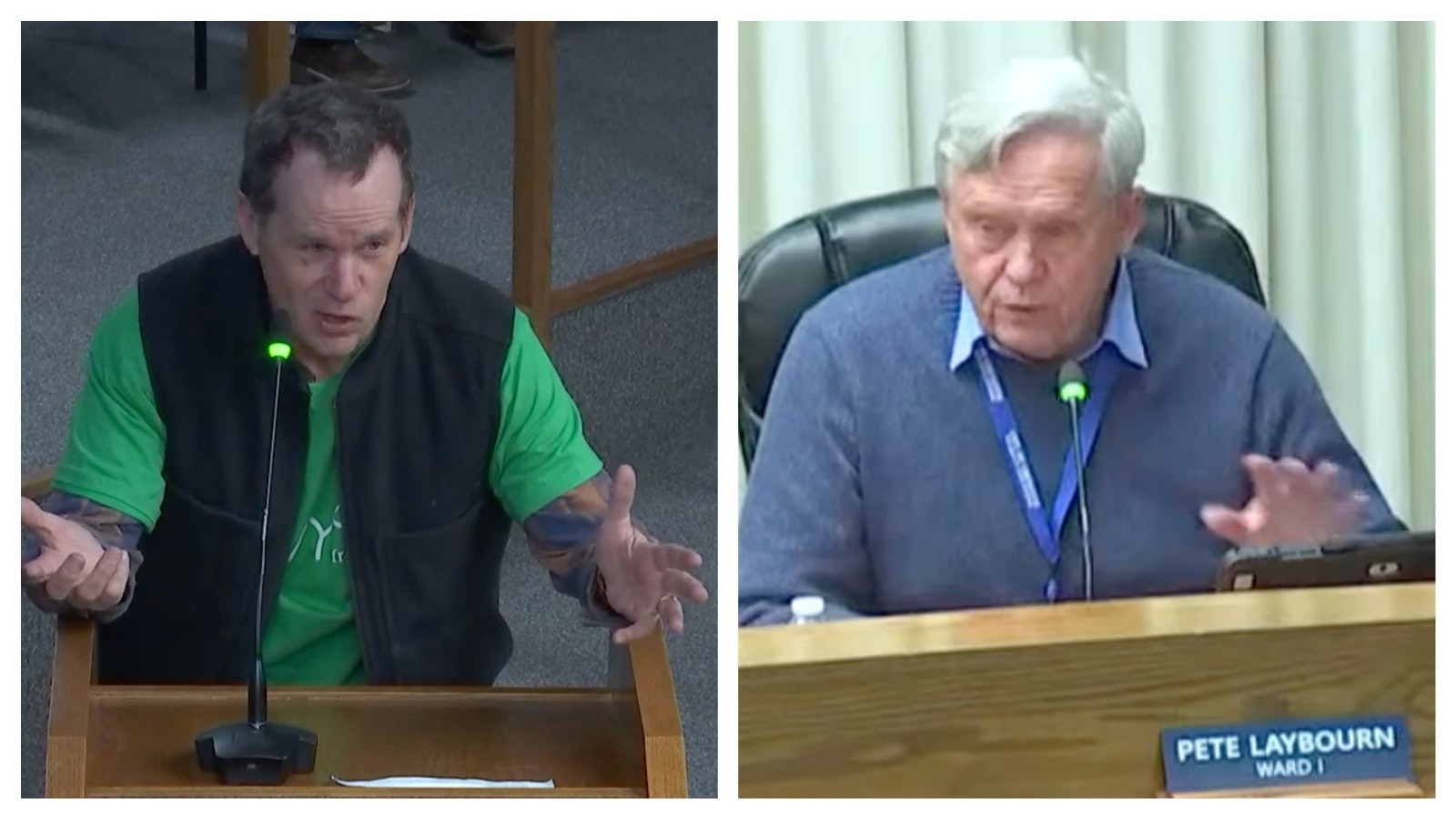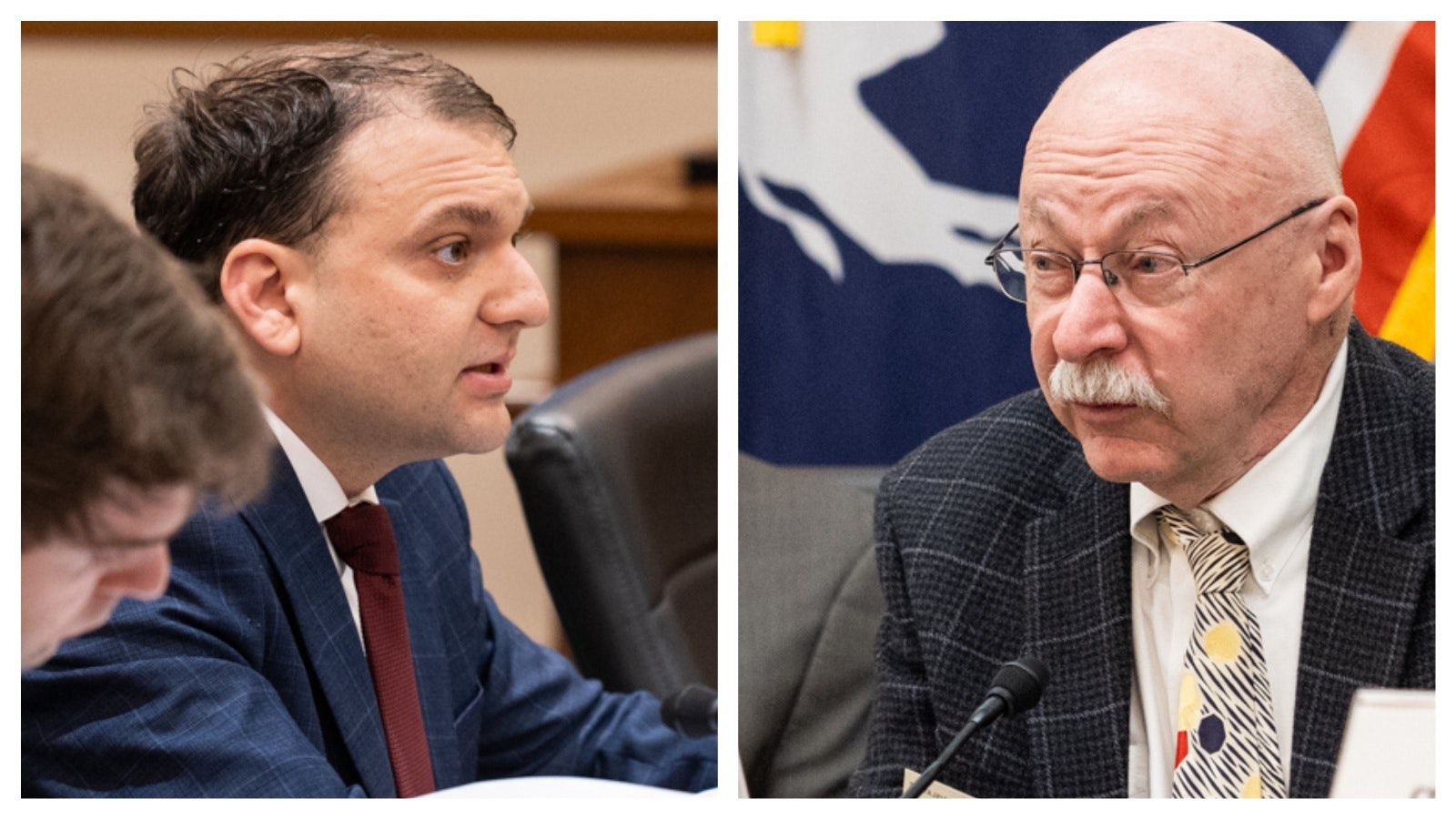A mandate to keep males out of women’s bathrooms in government buildings, a lifting of most government gun-free zones, and a requirement to prove U.S. citizenship and state residency when registering to vote were among the 106 new Wyoming laws that activated Tuesday.
When the Wyoming Legislature passes new laws in February or March, it will commonly have them activate July 1 of that year to give residents and those impacted by the new laws a chance to prepare for the change.
Some laws activate as soon as they’re passed, however.
Here are a few of the laws that activated Tuesday:
House Bill 43, giving parents a mechanism to sue pornography platforms that don’t take reasonable steps to keep minors from viewing their content.
House Bill 172, repealing most government gun-free zones, including on school campuses.
House Bill 69, giving the Wyoming secretary of state the authority to dissolve state-registered companies owned by foreign adversaries.
House Bill 72, giving people a mechanism to sue state government entities if those entities don’t take “reasonable steps” to keep males out of female bathrooms and changing areas (and vice versa) in public facilities and prisons. A similar bill governing schools already activated March 3.
House Bill 46, which says homeschool families don’t have to submit their curricula to local public school districts.
House Bill 156, which requires people registering to vote to provide documentation proving they’re U.S. citizens and residents of Wyoming for at least 30 days. This one is under legal scrutiny but as of Tuesday, not blocked by a court.
House Bill 97, requiring authorities to investigate land sales within 5 miles of a critical infrastructure zone (such as the F.E. Warren Air Force base in Cheyenne) where there’s a “reasonable suspicion” that foreign adversaries or national/state security threats are involved.
House Bill 147, prohibiting Wyoming governmental entities from using any diversity, equity or inclusion (DEI) programs. Federally-recognized American Indian tribes are carved out from this one as a “political class.”
House Bill 116, invalidating driver’s licenses other states issue to illegal immigrants — with some exceptions.
House Bill 94, removing the limit on the number of charter schools Wyoming can authorize.
House Bill 164, barring state discipline of doctors who prescribe drugs off-label within their practices. Though abortion-drug providers were excluded from this protection, a judge temporarily blocked the exclusion Monday so that abortion-drug providers are also protected.
Senate File 107, which generally voids future noncompete agreements in Wyoming, with some exceptions like contracts that protect business sales, trade secrets, training expenses; and noncompete agreements for executive management positions.
House Bill 39, which expands a property tax refund to people making 145% of their county’s median gross household income, a decrease from the 165% threshold of the year before.
House Bill 40, which the leader of Wyoming’s Department of Revenue presented as a clarification that the state doesn’t collect taxes from “lemonade stands.” It removes one-time or sporadic sellers of goods from the definition of a taxable “vendor.”
House Bill 165, an outright ban on ranked choice voting.
House Bill 207, bolstering people’s legal claims and defenses where the state has burdened their exercise of religion.
House Bill 228, banning government entities from taking private donations to fuel election administration, including for voter outreach or education programs. All such costs will be paid with public money.
House Bill 275, banning the torture of wildlife. This one has exceptions for immediate killing of wildlife and trapping under normal state regulations.
Senate File 6, giving the police more authority in instances of “squatting,” or staying in someone’s home without their consent.
Senate File 17, pulling $10 million from Wyoming’s savings account to give stimulus payments to oil recovery projects using carbon dioxide, or “carbon capture.”
House Bill 337, banning foreign nationals from funding and influencing political action committees. The enforcement of this one is based on the groups’ own sworn statements that they’re not taking money from foreign nationals. The groups will also be required to keep expenditure and contribution records for five years.
House Bill 28, enabling authorities to disqualify commercial driver’s license holders who violate texting-while-driving laws, or who have been caught driving with a blood-alcohol content of 0.02% or higher.
House Bill 33, a big boost to the state’s highway fund and a gouge of the state’s main bank account. It moves about $70 million per year in revenues from the state’s general fund into the Wyoming Department of Transportation budget to maintain and build state highways.
House Bill 75, decreasing severance taxes on coal from 6.5% to 6%.
House Bill 125, repealing Wyoming’s joy-riding misdemeanor that was punishable by up to one year in jail. Prosecutors used to charge people who took cars temporarily then ditched them with unauthorized use of a motor vehicle; now they’ll need to charge them with theft (likely felony theft, given that most cars cost more than $1,000), which is a 10-year felony.
Senate File 34, appropriating $38.1 million to school construction and maintenance projects, and $20 million for a high school building project in Campbell County School District 1.
Senate File 44, banning transgender people of male biology from female collegiate sports competitions. Wyoming already bans males from girls’ school sports from grades seven through 12.
Senate File 74, protecting from some criminal prosecution people who “in good faith” seek medical help for someone suffering from a drug overdose.
Senate File 77, banning state government entities from requiring employees to use other employees’ “preferred pronouns.” Detractors of this one questioned whether they could also use it to call males “she.”
Senate File 100, letting sex and trafficking crime victims younger than 18 have therapy dogs in court or testify via virtual link.
Senate File 145, letting state and local governments invest their money in equities, including corporation stocks. Bill sponsor Sen. Tara Nethercott, R-Cheyenne, touted the law’s Tuesday activation as a balm to local government’s gouged revenues from recent property tax cuts.
Senate File 179, barring the government from using eminent domain to secure compensation for sage grouse protections.
House Bill 4, increasing private snowmobile permitting tags from $35 to $50 annually; commercial tags from $105 to $150; non-resident tags from $35 to $75; and instituting a one-time $25 permitting fee for antique snowmobiles.
Clair McFarland can be reached at clair@cowboystatedaily.com.





